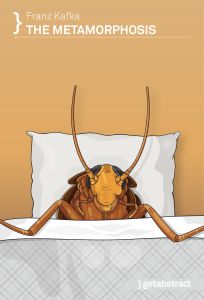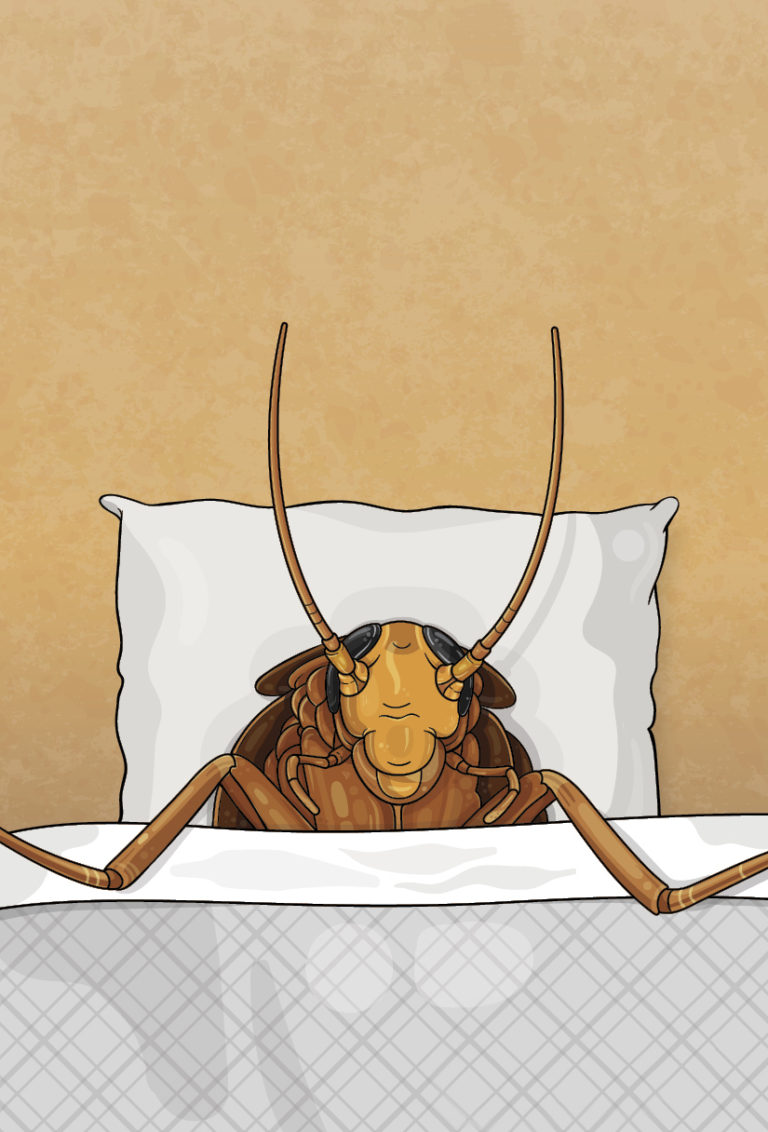
The Metamorphosis
- Novella
- Modernism
What It’s About
Though he lived and died in obscurity, Franz Kafka (1883– 1924) managed to become one of the most influential authors of the 20th century. Capturing his own feelings and fears on the page, his intensely personalized stories prefigured the focus on the individual and his or her relationship to society, a sentiment that dominated the latter half of the 1900s. While The Metamorphosis predates the era when totalitarian ideologies attempted to harness the individual to the needs of the collective, Kafka clearly saw how modern life demanded a submission of the will to the demands of the group – both through the need to earn a living and to maintain social conventions. By the 1960s, his depiction of the crushing weight and ultimate futility of being a good son and brother became a banner for youth trying to create a better world based on individuality, creativity and spontaneity. While the mechanisms of conformity have changed, the story still resonates today among readers left empty by a substantially richer but ultimately oppressive existence.
Summary
About the Author
Franz Kafka was born on July 3, 1883, in Prague, Bohemia, then part of the Austro-Hungarian Empire. As a German-speaking Jew living in a mostly Czech-speaking society, he was a member of a minority of an even smaller minority. His father, Hermann Kafka, was a shopkeeper and businessman, and his mother helped with the family business; as a child, Franz grew up with a series of governesses and servants. Franz’s relationship with his father was strained: The choleric and business-minded Hermann had no patience for his sickly and artistically gifted son, who in turn lacked the self-confidence to stand up to his father – a conflict that affected his entire life and writing career. After Franz finished his secondary education, he aspired to study philosophy yet switched to law due to his father wishes. He received a Doctor of Law degree in 1906 and later took a job at the Workers Accident Insurance Institute, an occupation he considered dreary and burdensome. He would have liked to work as a writer but didn’t have enough time and energy to do so after his regular job. He vacillated between short, productive writing sprees and periods when he suffered from total writer’s block. Continuing to live with his parents well into his career didn’t make things any easier. At age 31, he moved into his first apartment. His relationships with women, too, were problematic. In 1912, he met Felice Bauer from Berlin, a relative of his friend Max Brod, and got engaged twice but broke up both times. His other relationships with women went nowhere. Kafka started writing at an early age but destroyed many of his manuscripts. After publishing Betrachtung (Contemplation) in 1913, he published a collection of short texts and the novellas Die Verwandlung (The Metamorphosis) and Das Urteil (The Judgment) in 1916. Soon afterward, Franz Kafka came down with tuberculosis and died on June 3, 1924. Against Kafka’s wishes, Max Brod published the other surviving manuscripts posthumously, including the novels Der Prozess (The Trial) and Das Schloss (The Castle).








Comment on this summary or Начать обсуждение